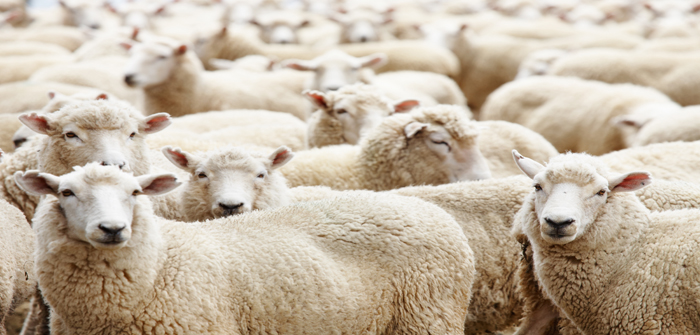Experts are advising farmers to worm their sheep based on growth rates and diagnostic data after information on worm patterns showed big variations between regions and year on year.
Results from 26 sentinel farms involved in the Zoetis Parasite Watch Scheme showed that despite a hot and dry spring last year, worms were still a major issue throughout the year and late on in the season.
The main findings from 2020 were:
Nematodirus
National data did not show a major spike in egg output with egg counts from April to August remaining at a consistent level of 125 eggs per gram (epg).
On sentinel farms in Scotland, North West England and Northern Ireland egg counts peaked in June with an average of almost 400 epg highlighting the regional variation.
Strongyle egg counts
National data showed higher egg output in March, August and from September to November, with a similar pattern reported across the 26 sentinel farms involved in the Zoetis Parasite Watch Scheme.
Regional data from the sentinel farms highlights that Wales and South West England saw a threat earlier on with an initial peak in March, compared to other areas of the UK which did not see any peak in worm in egg counts until May onwards.
Zoetis vet Ally Anderson said: “The main take-home messages from these results are that no two years are the same and there are big regional variations.
“Despite the hot and dry spring, worm eggs remained in the dung and became a problem when there was wet weather, which allowed their development to continue. Although the worm patterns last year largely followed the weather with spikes in worm egg counts a few weeks after warm and moist conditions, it is important not to base treatment decisions solely on the weather conditions.”
Monitoring growth rates and conducting faecal egg count tests in lambs every 3-4 weeks throughout the grazing season are tools that can help inform treatment decisions.
Ms Anderson added: “Faecal egg count tests are money well spent as they can help reduce treatment costs meaning the most suitable wormer can be used when there is a risk, reducing the resistance pressure through unnecessary treatments.”
She said it is hard to predict what will happen this year with worms.
“There are too many factors that influence worm burdens on farms, it is not just the weather. It also boils down to grazing practices, whether new stock have been bought in and were carrying worms and past treatment history,” Ms Anderson said.
“However, with last year’s data showing high worm counts into October and November it’s important farmers continue testing their sheep after September, as the risk could still be there.”
Dr Philip Skuce, from Moredun Research Institute, said even the extremely low temperatures seen in February will not necessarily stop worm and fluke eggs from overwintering.
He said: “Snow is remarkable insulation. Even at -10°C fluke eggs can still survive. It is important not to use the weather to develop a treatment strategy for the year. No two years are the same.”
How does Parasite Watch work?
It is important farmers know what the parasite risk is in their area at different times of the year, so they can take appropriate action. This is where Parasite Watch can help as it alerts farmers to the risks in their area in real-time.
Parasite Watch is now in its sixth year. It has a network of 26 sentinel farms testing regularly throughout the season for gut worms, Nematodirus and fluke. This can give farmers an indication of the risk of a high parasite challenge in their area.
Farmers and SQPs can sign-up to receive 2021 alerts for free by clicking HERE.


